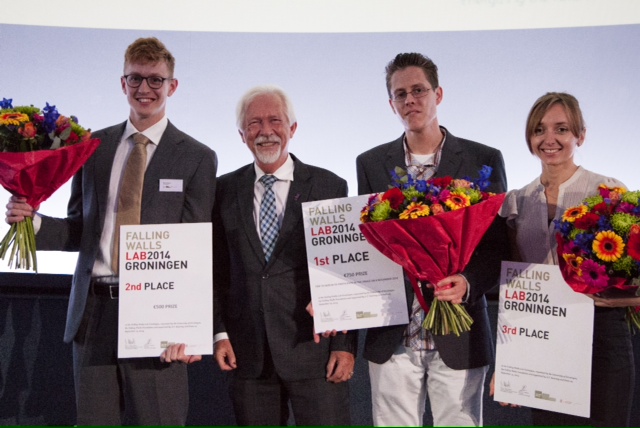Andries de Vries wins Dutch Falling Walls preliminary round
On Monday 15 September, the first Dutch version of Falling Walls Lab took place in the Infoversum. At a breathtaking rate, seventeen young researchers vied for the highest honour: a place in the Falling Walls Lab world finals in Berlin, on 8 November.
This is the day that the Berlin Wall crumbled 25 years ago. To commemorate this, Falling Walls annually organizes a series of meetings focusing on innovation, creativity and freedom of thought. Candidates under 35 can give a three-minute pitch on how to bring down walls: this could concern a academic or social breakthrough. The preliminary rounds are held at eighteen renowned institutions across the world, from Los Angeles to Johannesburg, and from Beijing to Groningen.
Antibiotics
Under the beautiful dome of the Infoversum, topics ranged from resolving reading problems with a computer game, to making good use of orange peel, to using the internet to strengthen the right to good health in China. President of the Board of the University of Groningen, Sibrand Poppema, awarded the first prize to Andries de Vries, who was selected as winner by the jury led by organizational expert and Rosalind Franklin fellow Jennifer Jordan (one of the 2011 winners in Berlin). De Vries will defend the University colours at the world finals in Berlin, with a pitch on a breakthrough involving the problem with antibiotics losing effectiveness.

More news
-
17 February 2026
The long search for new physics
-
10 February 2026
Why only a small number of planets are suitable for life
